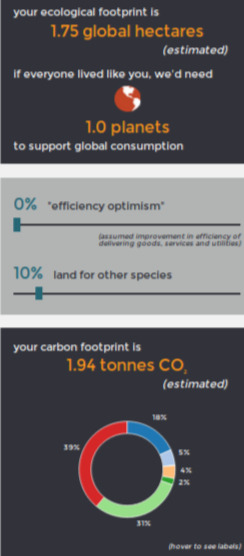Blogs
It is possible to reduce the use of the car, using more the bicycle or walking, the My travels are usually places near home, also improving the feeding for healthier feeding, using more food freshes and planting what gives non-backyard and on the balcony, still decrease the quantity produced by recycling, recyclable waste... etc…
I think that first of all we must reduce the use of the car, produce our food and use fresh food, save, recycle etc ...
As an example of excessive use of the car;
The main gases emitted by transport are:
Carbon monoxide (CO): colorless gas or smell that is associated with hemoglobin, causing headache and reduced respiratory capacity. At high concentrations, it causes asphyxiation and may even kill.
Hydrocarbons (HC): are organic compounds such as methane and benzene, which may be carcinogenic in high concentration. They help form oxidants such as ozone (O3) and contribute to global warming.
Sulfur dioxide (SO2): results from the burning of sulfur, which is in higher concentration without diesel. Reduces visibility and causes acid rain, which causes corrosion of buildings and destruction of vegetation.
Aldehidos (CHO): exclusive product of the combustion of alcohol and Brazilian gasoline, which has up to 25% alcohol. In large volumes in the atmosphere, we may cause irritation to eyes and respiratory tract.
Carbon dioxide (CO2): it does not harm man (it is the gas produced in our respiration), but it is the main cause of the greenhouse effect.
Nitrogen Oxides (NOx): They form oxidants such as ozone (O3), which causes irritation to the eyes and respiratory system and constitute smog, a pollution fog that hinders visibility. Contribution to the greenhouse effect.
Particulate matter (PM): includes soot, dust, smoke and all suspended material in the air.
These gases cause an increase in the greenhouse effect or release of polluting gases into the atmosphere, especially those resulting from the burning of fossil fuels. The burning of oil and gasoline in large urban centers has contributed to the greenhouse effect. Carbon dioxide (carbon dioxide) and carbon monoxide are concentrated in regions of the atmosphere forming a layer that blocks heat dissipation. These are generated mainly by the diesel engine.
To avoiding damages in climate change we must abandon fossil fuels, upgrade infrastructure, live closer to work, consume less, be efficient, eat smart, stop tree felling, use modern fuels etc ... Only then can we change the climate and better our life on planet earth in my vision.

Post comment
1 Comment(s)
Hi Isabella,
You have a well researched and informative response. I live in Shanghai, China and I have a personal connection with the problem of pollution because of the impact on my daily life here. Thank you for sharing your knowledge of the adverse affects of the use of cars. You note that we must abandon fossil fuels, which would certainly improve a lot of problems; however, since the world is currently very dependent on fossil fuels, how do you think this change could happen? Do you think we have enough alternative energies now? Are these energies efficient enough for more widespread use? Which of the actions that you suggested will you take action on to being to reduce your carbon footprint?
Allison

Allison Bruce
Sep 23, 2017